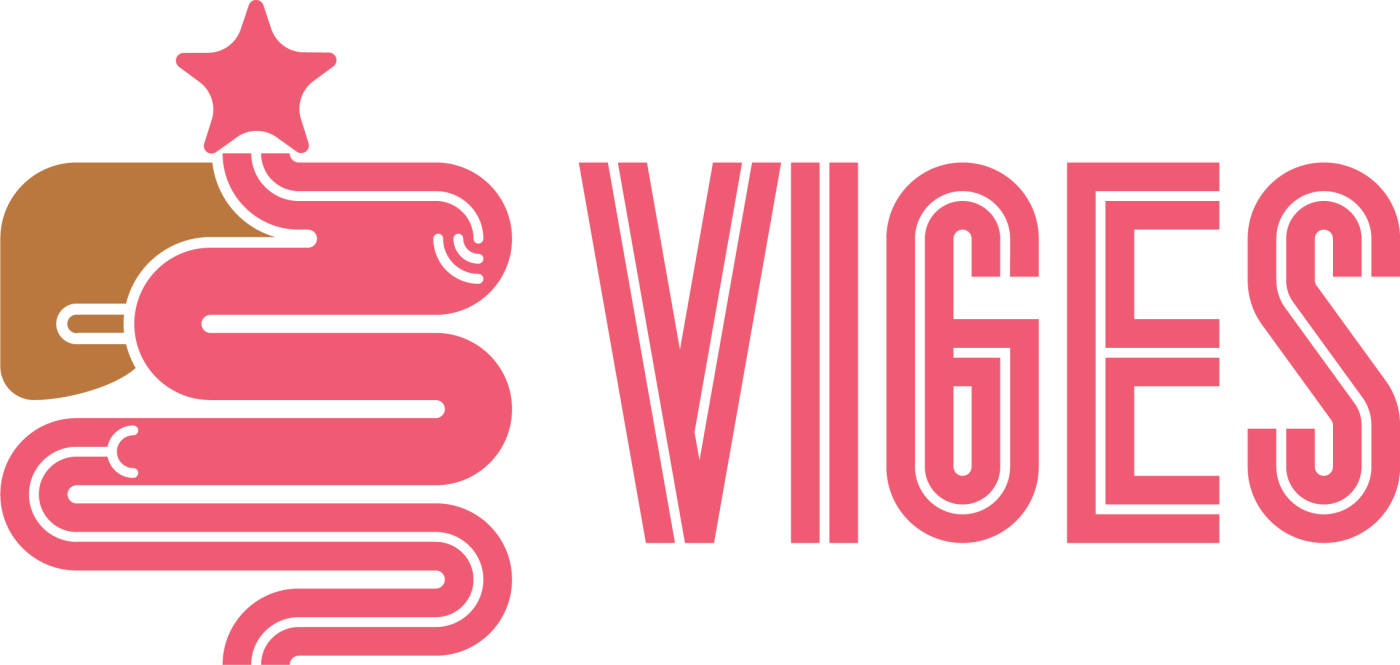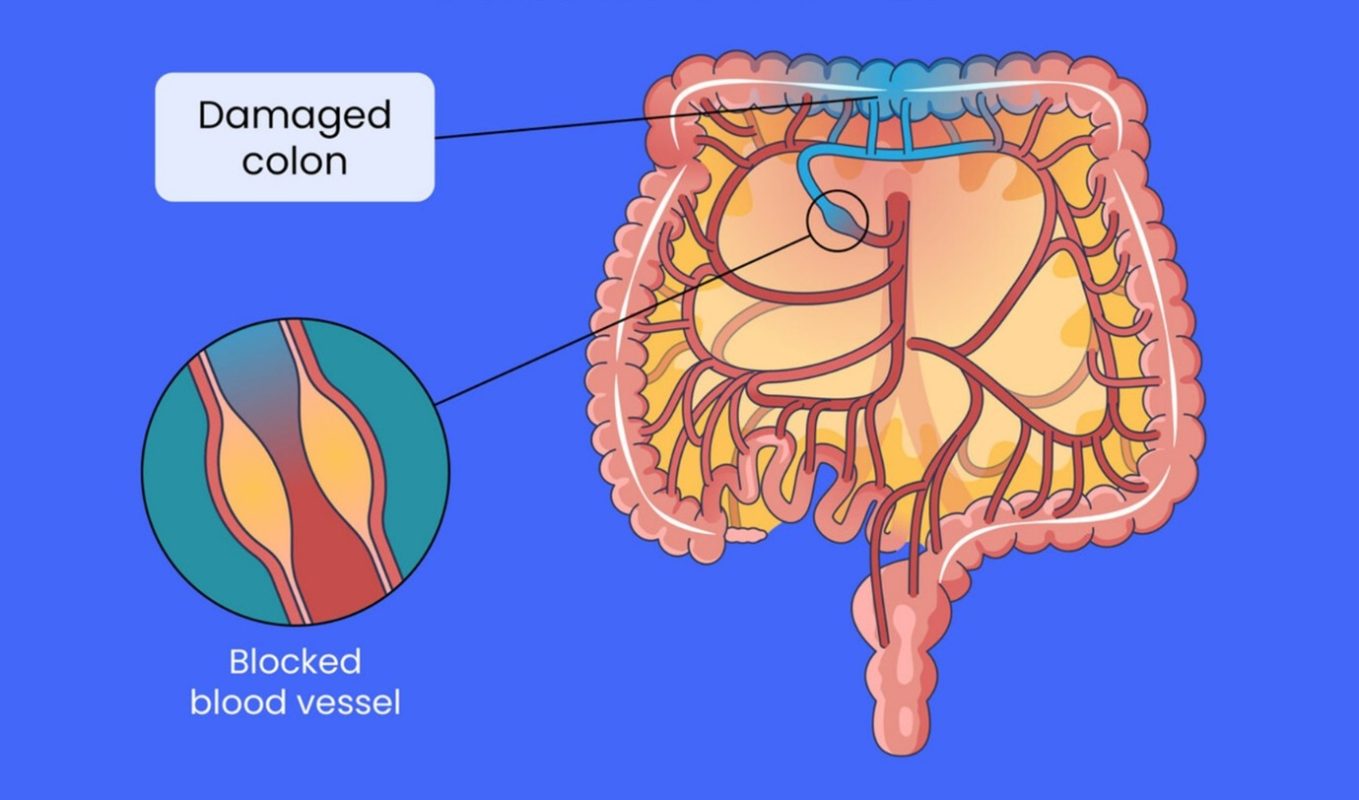"Do you know: Severe abdominal pain accompanied by bloody diarrhea may be a warning sign. ischemic colitis – một bệnh lý nguy hiểm nhưng ít người biết đến? Bài viết này sẽ giúp bạn hiểu rõ nguyên nhân, cách xử lý kịp thời và phòng ngừa biến chứng đe dọa tính mạng!”
1. What is ischemic colitis?
Viêm đại tràng thiếu máu cục bộ xảy ra khi mạch máu nuôi ruột già bị “tắc nghẽn” tạm thời, giống như đường ống dẫn nước bị nghẹt. Lúc này, các tế bào ruột không nhận đủ oxy, dẫn đến sưng đau và tổn thương thậm chí có thể hoại tử đoạn ruột đó.
Nguyên nhân thường do mạch máu bị hẹp (chẳng hạn như: cục máu đông, tích tụ mỡ, …) hoặc huyết áp tụt đột ngột vì mất nước, bệnh tim… Thông thường cơn đau hay xuất hiện bên phía trái bụng, tuy nhiên bất kỳ đoạn ruột nào cũng có thể bị ảnh hưởng.
This disease is very easy to confuse with common colitis or food poisoning. Bác sĩ có thể chỉ định dùng thuốc kháng sinh, giảm đau, hoặc phẫu thuật nếu ruột bị hoại tử. May mắn là hầu hết các trường hợp nhẹ sẽ tự khỏi sau 2-3 ngày nếu nghỉ ngơi đúng cách. Tuy nhiên, nếu thấy severe abdominal pain and bloody diarrhea, you need to go to the hospital immediately – any delay could lead to a ruptured bowel or a life-threatening infection!
2. 5 signs to identify
✅ Severe pain in the left side of the abdomen: Painful like a knife stab, not relieved when resting.
✅ Having blood in stool: Bright red or dark brown blood, which may be mixed in the stool or appear as blood.
✅ Nauseous, dizzy: Accompanied by fatigue, sweating.
✅ Continuous diarrhea: Going to the bathroom many times, loose stools.
✅ To give birth: The feeling of needing to defecate right now.
Ischemic colitis causing pain in the right flank has a higher risk of serious complications compared to pain in the left abdomen. People with colitis often have a history of multiple associated conditions such as hypertension, atrial fibrillation, and kidney disease, resulting in a higher risk of surgery and a higher risk of death.
3. Who is most susceptible?
There are several factors that may increase the risk of ischemic colitis:
- Elderly people (over 60): Atherosclerotic blood vessels, prone to blockage.
- People with low blood pressure are often associated with conditions such as dehydration, heart failure, surgery, injury, or shock.
- A person with a history of abdominal surgery: Intestinal obstruction due to hernia, scar tissue, or tumor.
- Surgery related to the heart or blood vessels, or the digestive system or gynecology.
- Patients have a history of diseases causing anemia such as: lupus, sickle cell anemia, vasculitis, Leiden factor V disorder, ...
- Users of contraceptives and cardiovascular drugs: Some medications cause blood vessel constriction.
- Marathon runner: Overtraining causes blood to flow to the muscles, leading to a lack of blood supply to the intestines.
- Patients with colon cancer: rare
4. Dangerous complications if treatment is delayed
- Intestinal necrosis: Surgery is required to remove the damaged section of the intestine.
- Stomach ache: Causing peritonitis, sepsis.
- Intestinal obstruction: Severe abdominal pain, high risk of death
5. Effective prevention methods
💧 Drink enough 2 liters of water per day: Keep the blood vessels circulating well.
🚴 Gentle exercise: Walk 30 minutes a day instead of over-exercising.
🚭 Stay away from cigarettes, alcohol, and beer: The cause of arteriosclerosis.
🏥 Regular health check-up: Especially if you are over 50 years old or have heart disease.
Tình trạng đau bụng gây cảm giác khó chịu đến mức không thể ngồi yên hoặc tìm tư thế thoải mái là các trường hợp đau bụng cấp tính cần có sự trợ giúp từ nhân viên y tế. Chẩn đoán và điều trị sớm có thể giúp ngăn ngừa các biến chứng nghiêm trọng.
#IschemicColitis #GastrointestinalDisorder #SevereAbdominalPain #BloodInStool #NgườiBệnhTimMạch

